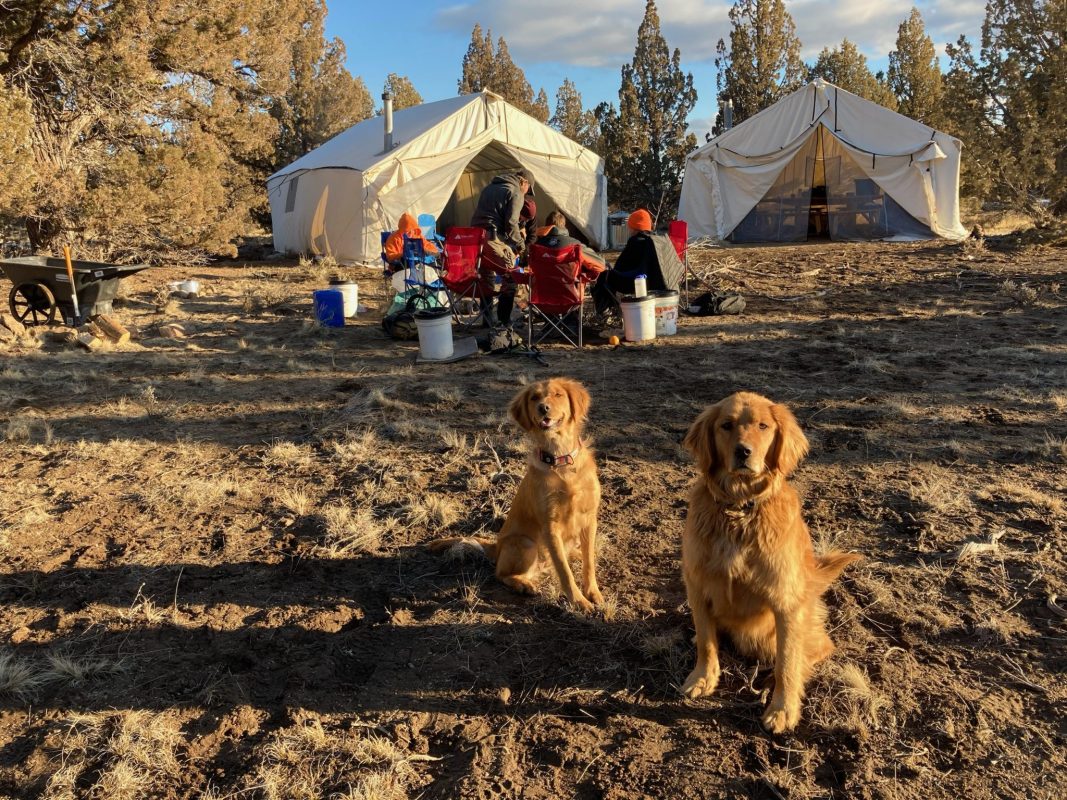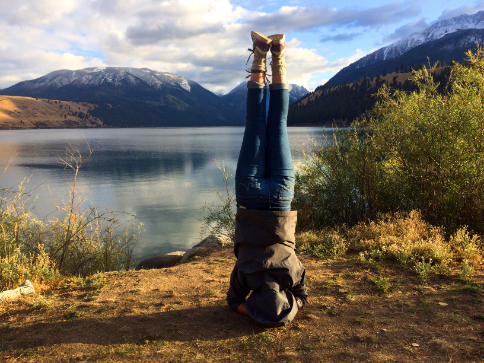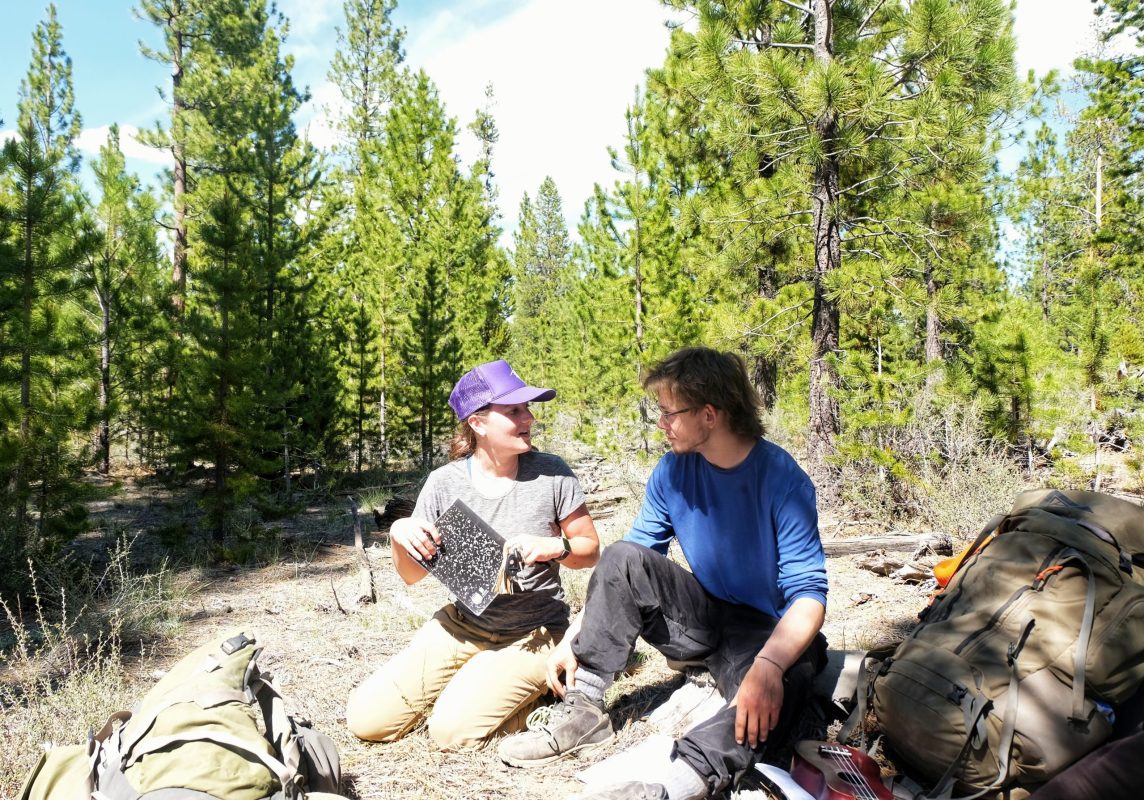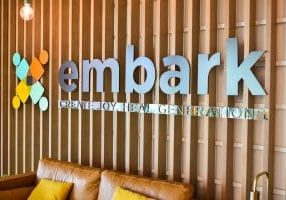Wilderness Therapy
Premier Wilderness Therapy for Preteens, Teens, and Young Adults
Wilderness therapy, also known as outdoor behavioral health, is a short-term, life-changing, experience that uses the great outdoors as the setting for therapy, growth, and healing. Struggling or at-risk teens that are dealing with a wide range of behavioral, emotional, and mental health issues may benefit from wilderness therapy.
A typical stay is 30 to 120 days and includes outdoor skills, camping, hiking, and adventure activities, along with an intensive, sophisticated, and customized clinical intervention.
Specialized wilderness therapy programming is available for:
Preteens
Teens
Young Adults
Many of these students do not thrive in or have already not had success with, traditional residential or outpatient therapy, while others are simply resistant to treatment. In these cases, wilderness therapy can be an alternative to traditional treatment settings.
Research demonstrates that contact with nature is associated with increases in happiness, subjective well-being, positive affect, positive social interactions, and a sense of meaning and purpose in life, as well as decreases in mental distress.
Wilderness therapy is an intermediate intervention (typically more in-depth than intensive outpatient programs but less so than residential treatment). Wilderness programs typically focus on:
Stabilization
Assessment
Treatment
What is Wilderness Therapy?
Wilderness therapy programs work because they remove young people from their current environment where technology, toxic friendships, dysfunctional relationships, and sedentary or packed schedules can drive unhealthy behaviors. When we are away from these conditions, we are left with ourselves, the peers and staff around us, nature, and life’s natural consequences.
In therapeutic outdoor programs, troubled youth receive multifaceted mental health treatment in a wilderness setting. Here, they learn new ways of coping and thinking that can help them end a pattern of poor choices and dysfunctional relationships.
Stepping away from the urban world, technology, social media, and the traditional demands of schedules can be transformational. Wilderness therapy participants camp, hike, and learn survival wilderness skills, alongside the individual, family, and group therapy facilitated by trained professionals and licensed clinical therapists.
Wilderness therapy programs allow for profound change in a shorter period of time. Lengths of stay range between 30 and 120 days.
There is little that compares to the impact of combining nature with cutting-edge treatments and therapy.
Wilderness Therapy + Adventure
Although wilderness programs may vary in the methods and therapies they use, all high-quality programs pair clinically sophisticated therapy with challenging experiences that promote healing and growth.
Most students end up doing things they have never experienced before. As an example, our students participate in activities with staff members, such as:
- Backpacking
- Camping
- Hiking
- Mountain biking
- Rock climbing
- Swimming
- Canoeing
- Rafting
- Fishing
- Snowshoeing
- Cross-country skiing
- Equine therapy
- Dog sledding
- Ice fishing
- Canine therapy
- Yoga
- And more…
What to Look for in a Wilderness Therapy Program
High-quality wilderness therapy programs include:
Recent Blogs & Tips
Who Does Best in Wilderness Therapy?
Outdoor wilderness programs are effective with many behavioral, emotional, and mental health issues. Most of the behaviors are simply symptoms of underlying stress and shame.
Typical situations include:
Students often experience:
Wilderness therapy may not be the right choice for everyone. Many teens and young adults thrive in a traditional outpatient, individual therapy setting. However, for those that have not excelled in an outpatient setting (such as a clinical therapist, intensive outpatient program, or regular visits to a psychiatrist), or those who are generally treatment-resistant and their environment is simply too negative, wilderness therapy may be appropriate.
Why Choose an Embark Wilderness Therapy Program?
After a wilderness therapy program is complete, it is vital to transition your child into a continuing care program so they can maintain the growth they achieved.
Embark Behavioral Health offers a full spectrum of care in specific locations as well as online therapy nationally.
Our in-person, outpatient programs (including IOP, PHP, and in-home) are offered in:
For families in these metropolitan areas, an Embark wilderness program is ideal because we can seamlessly transition your child to a local clinic for continuing care. For families not located in these areas, our robust online therapy options are an ideal solution. And in other cases, enrollment into a residential treatment program may be the most appropriate step.

How to Find an Outdoor Behavioral Healthcare Program for Your Child

Embark Behavioral Health is committed to finding the ideal treatment options for your child, even if it is not with us.
Call or chat with us today to find out if our programs are the right fit for your family’s needs.
Additionally, educational consultants (EC's) can help families find the right outdoor behavioral healthcare program for the right reason and at the right time. EC's will use their membership associations like the Independent Educational Consultant Association (IECA) or the Therapeutic Consulting Association (TCA) to provide a list of the best therapeutic wilderness programs for your child.
Top Questions Families Have About Wilderness Therapy Programs
A: Wilderness therapy is not anything like a boot camp. While boot camp is an education program that often uses fear-based, aggressive, and coercive methods to change behavior, wilderness therapy takes a compassionate approach. Fear is not a healthy, nor long-term, catalyst for change. Wilderness therapy techniques use the lessons of nature to create therapeutic opportunities, but in a very safe and nurturing way that promotes healing. Unlike boot camps and military schools, wilderness therapy also employs licensed mental health professionals that have master’s degrees or above.
A: Wilderness therapy can be a reliable and powerful treatment option that produces long-term, sustainable results.
Quality wilderness therapy programs have six qualities in common that promote safety and effectiveness. Embark’s programs meet all of these criteria:
- Accredited by the Joint Commission
- Accredited by a national academic institution such as Cognia
- Accredited by the Association for Experiential Education
- Licensed by their state
- Members of an association such as NATSAP
- Approved by the National Forest Service
- Member of wilderness therapy association such as OBH
Research also shows that “While no treatment can guarantee the total safety of any child, adolescents participating in outdoor behavioral healthcare programs are at less risk than adolescents not participating in these programs.”
In another study, social researchers concluded that adolescents who participated in wilderness programs showed a “significant and enduring increase in self-efficacy.” In this context, “self-efficacy” is defined as “the ability to execute control over our own level of functioning and the events that affect our lives.”
A: Continuing care is critical. For many families, wilderness therapy programs are another step in their treatment path, and they will continue on to another setting - such as a therapeutic boarding school or residential treatment center. For other clients, they will return home to an outpatient or in-home therapy program.
Therefore, it is good to find a program affiliated with a local outpatient clinic. In these situations, the affiliated clinic will make the transition with an aftercare plan. The child and family should follow up and continue working with their therapist at home to make sure the child's progress during treatment is maintained.
A: Wilderness programs range in price from $500 to $750+ per day with a length of stay ranging from 30 to 100 days. The length of our program is dependent on the needs of the student and family. Families should expect students to be enrolled for 90 days. Programs have an enrollment fee to help cover the initial cost of adventure therapy equipment. Unfortunately, insurance does not typically reimburse these services.
Interested in Learning More About Wilderness Therapy for Teens?
The best way to determine which type of therapy or treatment is right for your teenager, is to speak with our mental health team.
Our mental health professionals will consider your child's symptoms and treatment history, as well as outline what you and your family want out of therapy to recommend the best next steps specific to your situation.
If you think one of Embark's wilderness therapy programs may be right for your daughter or son, contact us to learn more today.











